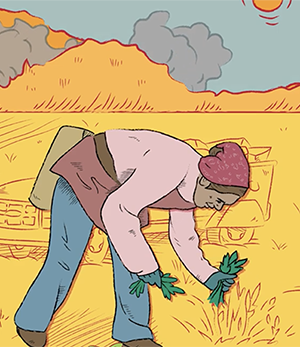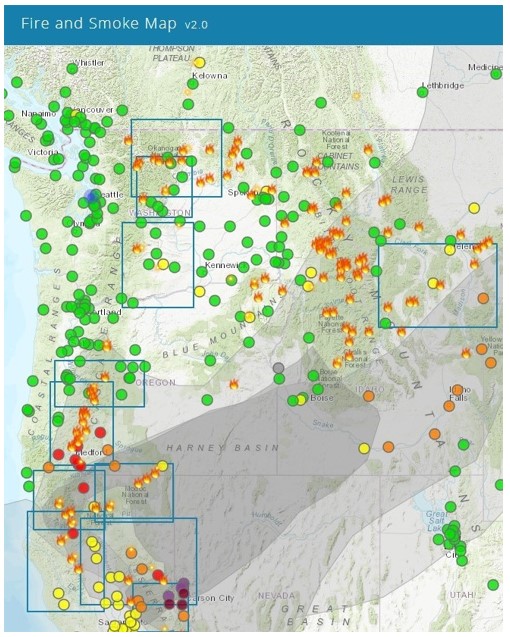Wildfires
Hands on the Land Project: Resource Clearinghouse for Forestry Services Workers
With this 5-year award to Oregon State Forestry Extension, PNASH joins as a partner in Hands on the Land, a collaborative program to enhance the equity of the forest workforce in the Pacific Northwest. We focus on labor-intensive forest workers including forestry services contract crews, incarcerated workers, and volunteer workforces.
Hands on the Land re-envisions our forest workforce with:
TEST Wildfire Smoke Safety
 What is wildfire smoke?
What is wildfire smoke?
Wildfire smoke is a complex mixture of gases. As a wildfire burns, different compounds are released in the smoke, such as carbon monoxide, carbon dioxide, hydrocarbons, and particulate matter (PM). The toxicity of wildfire smoke can change very quickly depending on factors in the wildfire environment, such as weather, fire behavior, and the type of vegetation burning.
Protecting crop workers under the sun and smoke
Who we are
Conducting research for healthy workers, strong communities and productive agriculture.
Smoke hazards in the Agricultural Workplace; a bilingual survey for agricultural employers
Agricultural workers are exposed to fine particulate matter from wildfire smoke given the nature of their work. The purpose of the proposed study is to explore and compare perceptions of air quality monitoring, health impacts, and hazard communication strategies among Spanish- and English-speaking agricultural employers and employees. Findings from our bilingual survey will be disseminated through peer-reviewed journals, conferences, and industry stakeholders.

